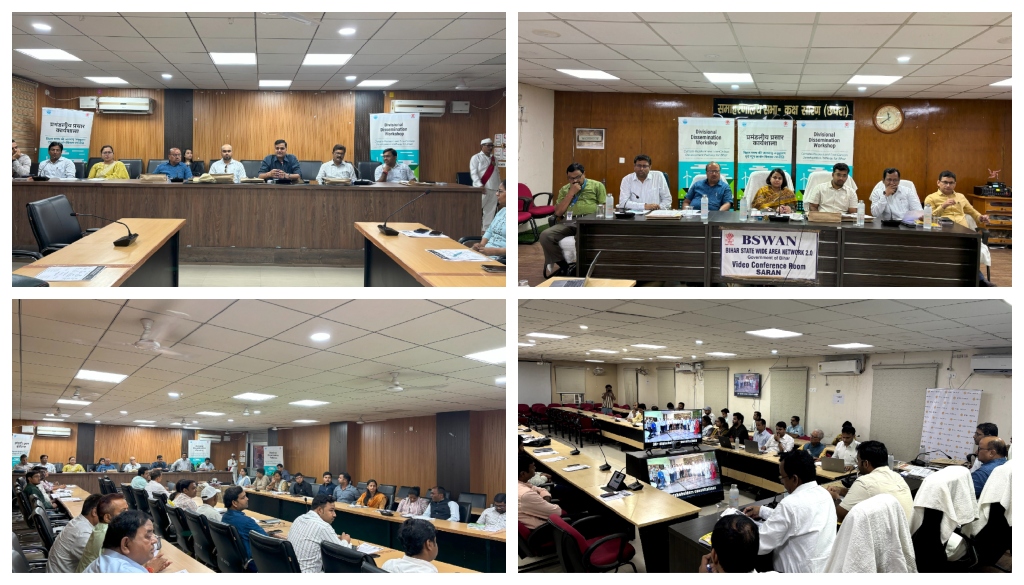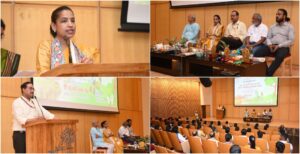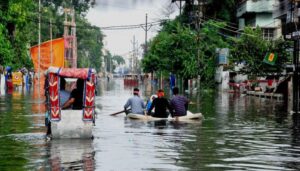Bihar Pushes Climate Action Agenda at Regional Workshops in Muzaffarpur and Chhapra

Patna: Bihar’s ongoing efforts towards carbon neutrality received a boost this week with divisional-level workshops held in Muzaffarpur and Chhapra. These events, part of the state’s “Climate Resilient and Low Carbon Development Pathway” initiative, brought together local stakeholders to strategize on climate resilience and low-carbon development, with the ambitious goal of achieving carbon neutrality by 2070.
In Muzaffarpur, the workshop was inaugurated by Deputy Development Commissioner Ashutosh Dwivedi, who called for a “think globally, act locally” approach. Dwivedi emphasized the necessity of integrating climate resilience into all development projects, particularly in light of the increasingly unpredictable weather patterns and rising temperatures in Bihar.
Additional Collector for Disaster Management, Manoj Kumar, acknowledged the state’s progress in infrastructure and energy but stressed the importance of embedding climate-resilient practices into these advancements. Divisional Forest Officers Atish Kumar and Bharat Chit Palli echoed this sentiment, underscoring the need for environmental considerations in development projects and advocating for efforts to increase the region’s green cover through afforestation.
Dr. Amita Raj, Divisional Forest Officer of Sitamarhi, highlighted the critical role of trees in carbon absorption, while Motihari Division Forest Officer Raj Kumar Sharma stressed the importance of inter-departmental coordination to safeguard trees during development activities. Waste management and recycling were also addressed by Bettiah Municipal Commissioner Shambhu Kumar as essential strategies for reducing emissions.
The following day in Chhapra, another workshop in the series was chaired by Saran Deputy Development Commissioner Priyanka Rani, focusing on advancing Bihar’s carbon neutrality goal. Qayum Ansari, Director of the District Rural Development Agency (DRDA), Saran, pointed to the increasing impacts of climate change, such as floods and extreme temperatures, reaffirming the state’s commitment to mitigating these challenges.
Saran Divisional Forest Officer Ram Sundar M emphasized the importance of wetlands as natural carbon sinks and called for dialogue between district-level officers and experts to address the challenges in achieving climate-resilient development.
Experts from WRI India, including Dr. Shashidhar Kumar Jha and Mani Bhushan Kumar Jha, presented the “Climate Resilient and Low Carbon Development Pathway” report for Bihar, outlining strategies for key sectors like energy, transport, waste management, and agriculture. Dr. Shashidhar highlighted concerning climate trends, noting that Bihar’s temperature has increased by 0.8 degrees Celsius over the past fifty years, with further rises anticipated.
Roushan Mishra from WRI India stressed the importance of integrating long-term meteorological data into Early Warning Systems, particularly given Bihar’s high rate of lightning-related fatalities. Anupam Kumar Singh, Assistant Professor of Geography at Rajendra College, Chapra, attributed climate change primarily to human activities and called for both individual and collective actions to combat it.
The workshop concluded with a vote of thanks from S.N. Thakur, Regional Officer of the Bihar State Pollution Control Board. The series of workshops will continue with sessions planned in Gaya and Patna, furthering Bihar’s commitment to a sustainable and climate-resilient future.





